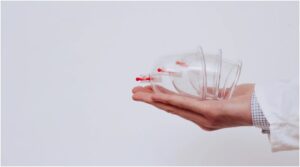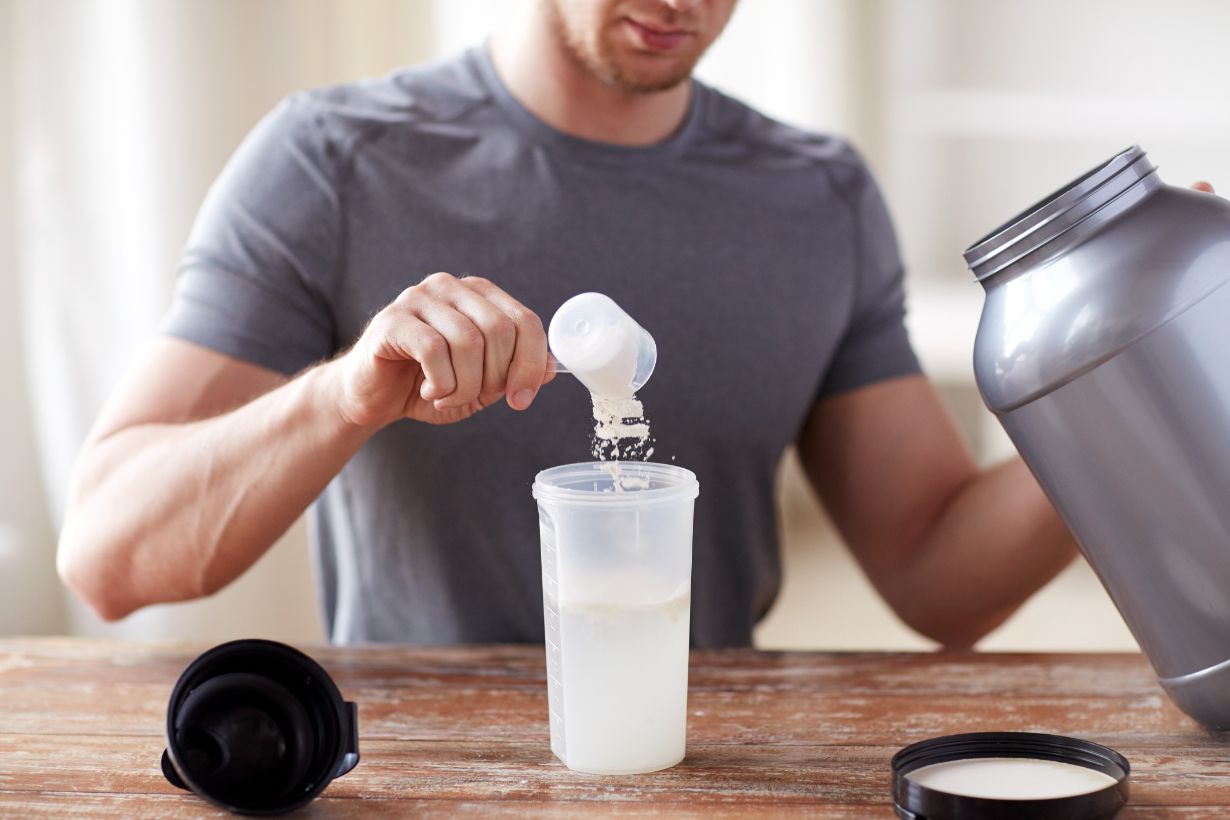
I’ll be honest with you—when I first started taking creatine, I was constantly chugging water like I’d just crossed the desert. My friends teased me about carrying a water bottle everywhere. At first, I thought, “Wow, this supplement must be turning me into a human cactus.” But then I wondered—was it the creatine actually making me thirsty, or was I just psyching myself out?
If you’ve had that same thought, you’re not alone. Creatine is one of the most studied supplements in the fitness world, but it still comes with plenty of myths. And one of the biggest? That it dries you out like a summer in Vegas.
So let’s break it down, sip by sip, and get to the bottom of whether creatine really makes you thirsty—or if it’s just another gym rumor gone wild.
What Exactly Is Creatine?
Before we tackle the thirst question, let’s rewind for a second. Creatine is a naturally occurring compound found in your muscles. Your body produces it from amino acids, and you also get some from foods like red meat and fish.
In supplement form, creatine is usually taken as creatine monohydrate, which boosts your muscles’ ability to produce ATP—the quick energy your body uses during high-intensity exercise. That’s why athletes and gym-goers swear by it for explosive lifts, faster sprints, and improved recovery.
So, creatine is basically fuel for your muscles. But does it come with a side effect of extra thirst?
Does Creatine Really Make You Thirsty?
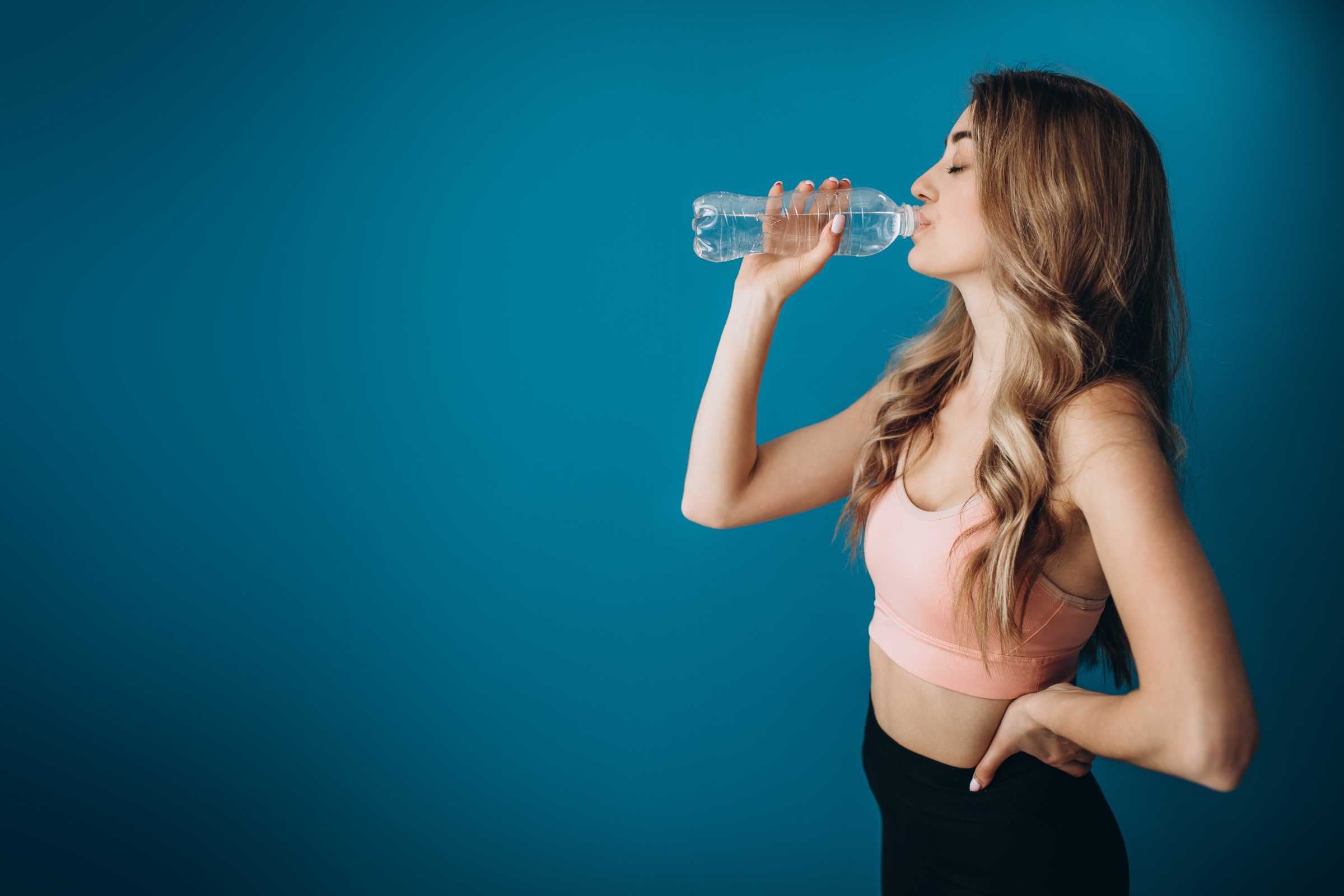
Here’s the deal: creatine doesn’t directly dehydrate you. In fact, it does the opposite. Creatine pulls water into your muscle cells, which makes them look fuller and perform better. This process is called cell volumization, and it’s one of the main reasons people notice quick changes in muscle size when they start supplementing.
However, because creatine draws more water into your muscles, it can leave less water floating around in the rest of your body. That’s why you might feel thirstier or notice a dry mouth. It’s not that creatine is dehydrating you—it’s just redistributing water.
So if you suddenly find yourself drinking more, it’s simply your body’s way of telling you to keep up with the new water balance.
Why Water Intake Matters with Creatine
Think of creatine as a houseguest who moves into your muscles and takes a big chunk of your water supply. If you don’t stock the fridge with enough bottles, everyone in the house starts fighting over what’s left.
That’s why proper hydration is essential when supplementing with creatine. Water isn’t just about quenching thirst—it supports digestion, joint health, temperature regulation, and muscle recovery. And when creatine is in the mix, your muscles are asking for even more.
Neglecting hydration can lead to side effects like cramping, fatigue, or headaches. But when you balance creatine with enough water, you’ll maximize its performance benefits without feeling parched.
How Much Water Should You Drink on Creatine?
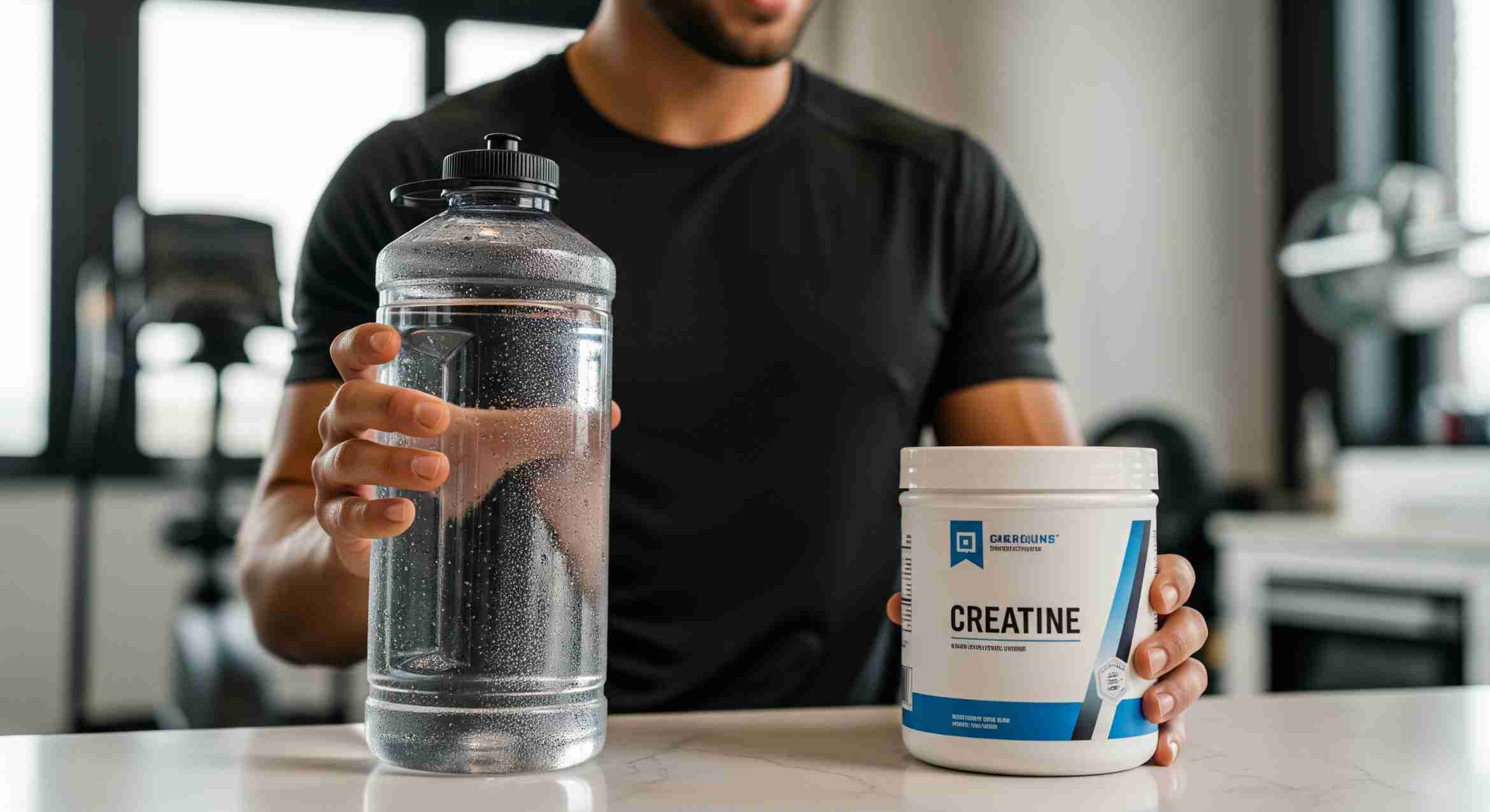
The golden rule is simple: drink more than you think you need. A safe recommendation is at least 3–4 liters of water per day while on creatine. But your personal needs depend on factors like body size, exercise intensity, and climate.
Here’s a quick cheat sheet to make things easier:
Creatine Water Intake Calculator
| Body Weight | Daily Water Intake on Creatine |
| Under 150 lbs (68 kg) | 2.5–3 liters (85–100 oz) |
| 150–200 lbs (68–90 kg) | 3–3.5 liters (100–120 oz) |
| 200+ lbs (90+ kg) | 4–5 liters (135–170 oz) |
Note: These numbers are guidelines, not strict rules. Always listen to your body.
Signs You Need More Water
Still not sure if you’re drinking enough? Your body gives you clues. Look out for:
- Dark yellow urine (clear to pale yellow means hydrated)
- Persistent dry mouth or lips
- Muscle cramps during workouts
- Fatigue or sluggishness even after rest
If you’re ticking any of these boxes, it’s time to grab another glass.
How to Balance Creatine and Hydration in Daily Life
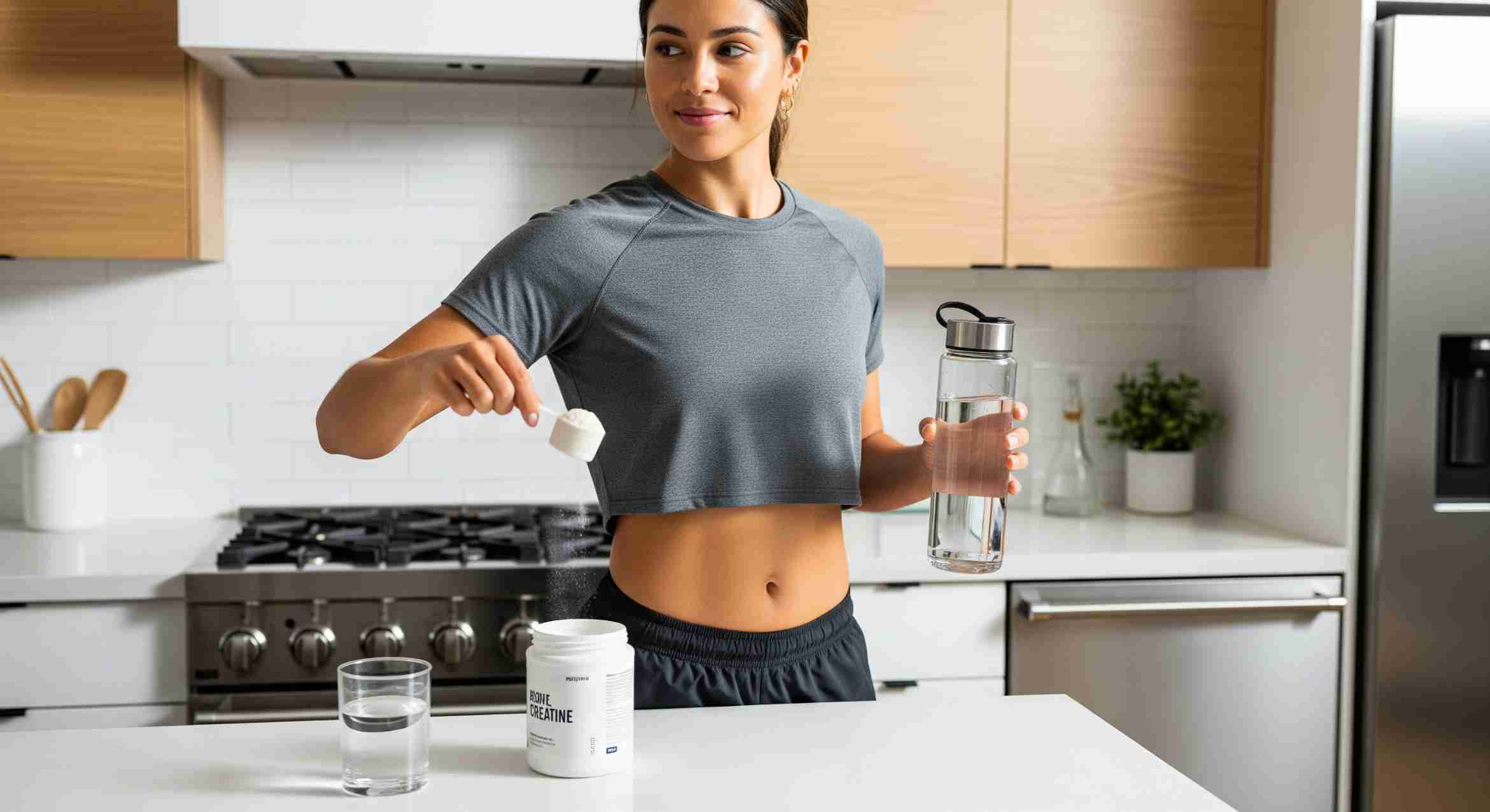
Let’s get practical here. No one wants to feel like they’re drowning in water just because they’re taking creatine. Here’s how to keep it simple:
- Start your morning with a big glass of water before your first scoop of creatine.
- Carry a reusable bottle with you throughout the day (bonus points if it has time markers).
- Pair every meal with a glass of water—hydration made effortless.
- If you train hard in the heat, add an electrolyte drink to keep your balance.
With small habits like these, hydration becomes second nature.
Other Factors That Influence Thirst on Creatine
While creatine does shift water into your muscles, other things can exaggerate the “I’m so thirsty” effect, which is why many people ask, does creatine make you thirsty in the first place.
- High-protein diets can increase water needs since your kidneys are working harder.
- Caffeine and alcohol act as mild diuretics, which may leave you dehydrated faster.
- Sweat-heavy workouts in hot climates drain water stores quickly.
So if you’re feeling like a dried-up sponge, it might not just be the creatine. Look at your lifestyle, too.
Myth-Busting: Creatine and Dehydration
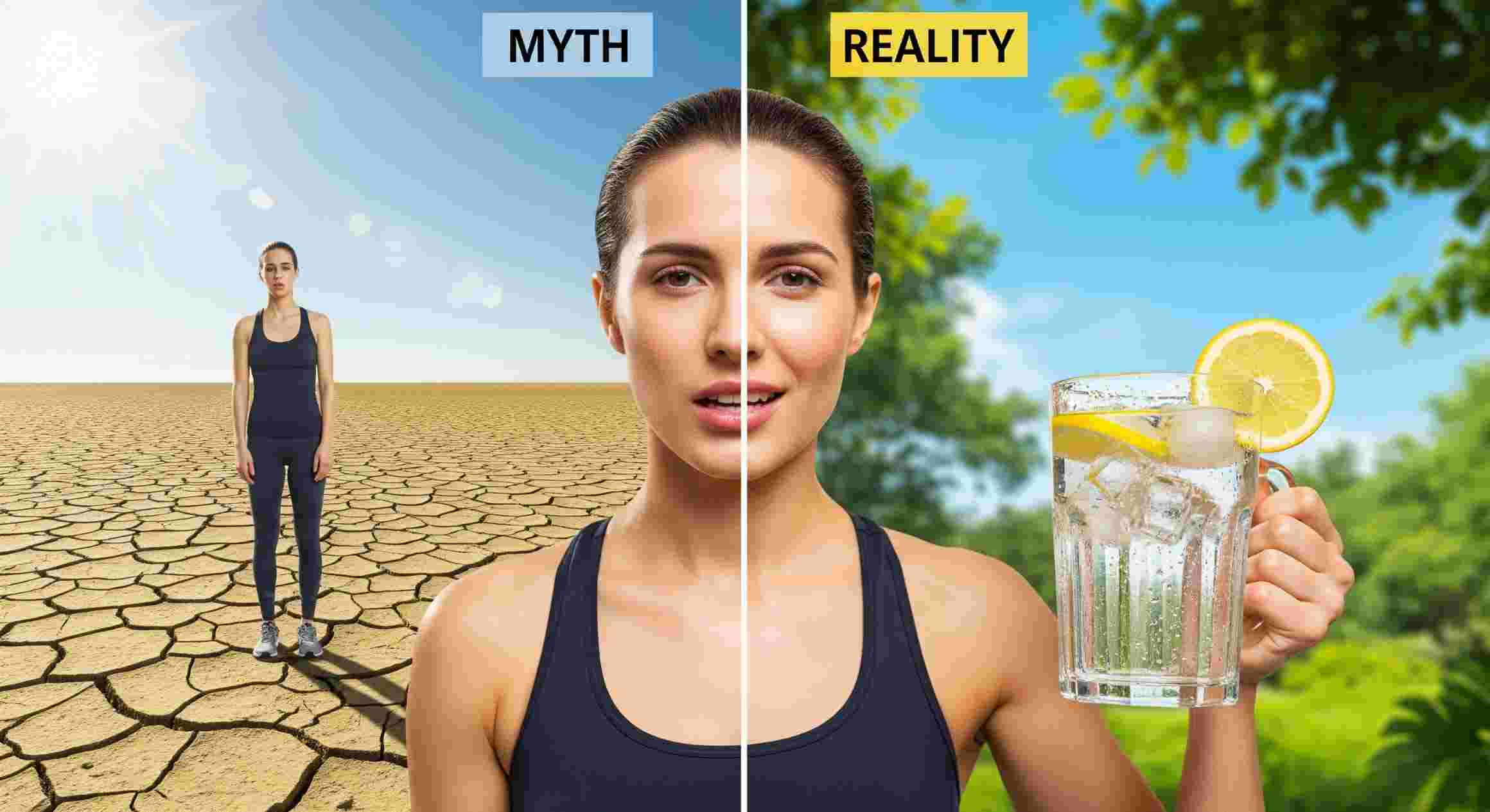
One of the biggest myths about creatine is that it causes dehydration or kidney damage. Countless studies have debunked this. As long as you’re healthy and drinking enough water, creatine is safe and effective.
The real risk isn’t creatine itself—it’s people not adjusting their water intake to match their supplement use and workout load.
FAQs About Creatine and Thirst
- Can creatine cause dry mouth?
Yes, some people notice a dry mouth when they start creatine, but it’s usually due to water being pulled into muscle cells. Increasing hydration solves it. - Should I stop creatine if I feel thirsty all the time?
No, you don’t need to quit. Just increase your water intake and monitor your body’s response. - Can I overhydrate while on creatine?
It’s rare, but possible. Aim for steady hydration throughout the day rather than chugging gallons at once. - Does creatine work without extra water?
It still works, but you’ll miss out on its full benefits. Proper hydration amplifies strength, recovery, and endurance.
Final Sip: Creatine + Water = Peak Performance
So, does creatine make you thirsty? Not exactly—it just changes where the water in your body hangs out. That shift means you’ll need to up your hydration game to stay balanced.
Personally, I treat my water bottle like an accessory. It goes where I go, especially on creatine. When you pair smart hydration with this powerhouse supplement, you get the best of both worlds: strong muscles, fast recovery, and zero desert-dry days. Remember—your body talks. Pay attention to its signals, adjust your water, and creatine will work its magic without a hitch.


